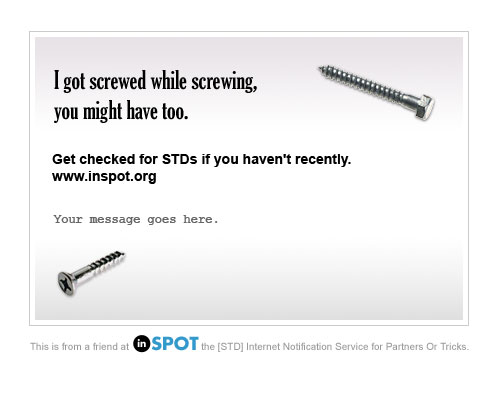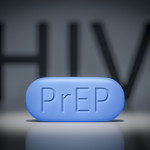
After I tested positive many years ago, I sent an anonymous letter to my former fiancee, a (then) young woman whom we will call Andrea. It read something like this: ?Dear Andrea - you may have been exposed to HIV. Please get tested.? This morning, I read about inspot.org, a website that can be used anonymously to inform the partners of people living with HIV and other STD?s that they?ve been exposed and should get tested. Inspot is a terrific service. It sends out ?e-cards? (like the one in this post) from a previous sex partner that the recipient may have been exposed to a sexually transmitted disease.
The e-cards, a sort of greeting card you?d rather not receive, are direct and to the point:
?Who? What? When? Where?? one available e-card begins. ?It doesn?t matter. I got an STD; you might have it too. Please get checked out.?
Recipients can then click links to learn more about STDs, possible treatments, and clinics in their cities where they can be tested.
The service started in San Francisco in 2004 mainly to serve the gay community, but it has since been broadened to include heterosexuals and expanded to cities across North America.
The service is the creation of Deb Levine, a sex educator and author of a book called The Joy of Cybersex, and of Dr. Jeffrey D. Klausner, director of STD Prevention and Control Services for the San Francisco Department of Public Health. According to the story I read (on msnbc.com) 49,500 postcards have been sent since 2004.
I?ve never read Levine?s book and probably won?t, but Inspot is a terrific service that may save lives. She deserves credit for it. If you are reading about Inspot for the first time here on Poz/Aidsmeds.com, and you know that there is someone else out there who you may have exposed to HIV, use it. It?s the right thing to do.







Comments
Comments